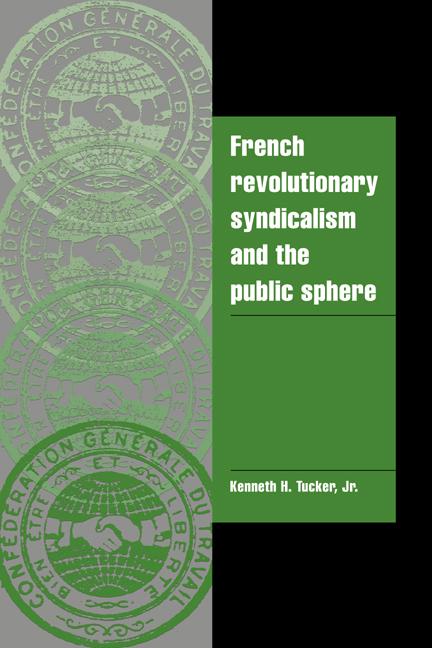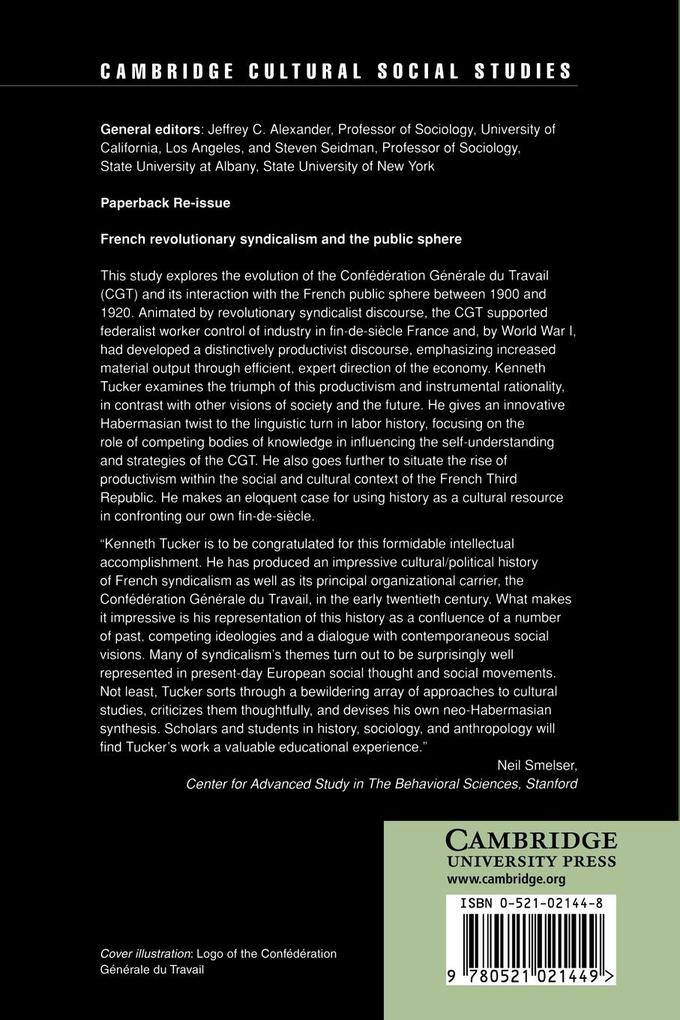
Zustellung: Sa, 19.07. - Mi, 23.07.
Versand in 5 Tagen
VersandkostenfreiBestellen & in Filiale abholen:
Combines social (Habermas) and cultural theory with history of major union in early twentieth-century France.
Inhaltsverzeichnis
Acknowledgements; Introduction: Prologue; 1. The Belle Epoque and revolutionary syndicalism; Part I. Reconfiguring the Language of Labour: The Advantages and Limitations of a Habermasian Historical Sociology: 2. Syndicalism, the New Orthodoxy and the postmodern turn; 3. Public discourse and civil society: Habermas, Bourdieu and the new social movements; Part II. Visions of Modernity in the Liberal and Proletarian Public Spheres: Positivism, Republicanism and Social Science: 4. The liberal and proletarian public spheres in nineteenth-century France; 5. The fin-de-siècle public sphere, the academic field and the social sciences; Part III. Exploring Revolutionary Syndicalism: 6. Pelloutier, Sorel and revolutionary syndicalism; 7. Reformulating revolutionary syndicalism; 8. Toward a new public sphere: Taylorism, consumerism and the postwar CGT; Conclusion: 9. The legacy of syndicalism; Notes; Index.
Produktdetails
Erscheinungsdatum
31. Juli 2005
Sprache
englisch
Seitenanzahl
296
Autor/Autorin
Kenneth H. Tucker, Jr. Tucker
Verlag/Hersteller
Produktart
kartoniert
Gewicht
484 g
Größe (L/B/H)
229/152/18 mm
ISBN
9780521021449
Entdecken Sie mehr
Pressestimmen
"...this is a dense and ambitious study of French revolutionary syndicalism during the belle epoque that should be of interest to labor historians as well as to those interested in contemporary sociological theory." Elizabeth Sage, Journal of Modern History "Kenneth Tucker is to be congratulated for this formidable intellectual accomplishment...Scholars and students in history, sociology, and anthropology will find Tucker's work a valuable educational experience." Neil Smelser, Director, Center for Advanced Study in the Behavioral Sciences, Stanford "French Revolutionary Syndication and the Public Sphere is an original and highly documented book that explores the evolution of French syndicalist organization." Alberto Spektorowski, AJS "...a sensitive readeing of an historical case used to motivate a critical but sympathetic critique of contemporary social theory, and particularly the work of Habermas." Christopher K. Ansell, Social Forces
Bewertungen
0 Bewertungen
Es wurden noch keine Bewertungen abgegeben. Schreiben Sie die erste Bewertung zu "French Revolutionary Syndicalism and the Public Sphere" und helfen Sie damit anderen bei der Kaufentscheidung.










